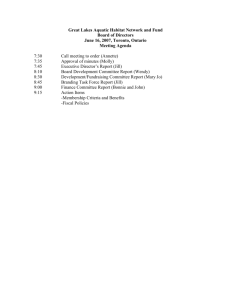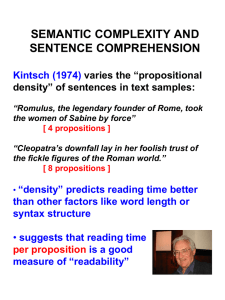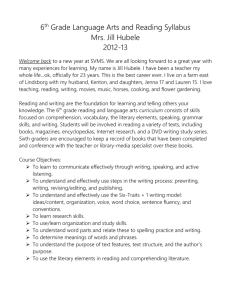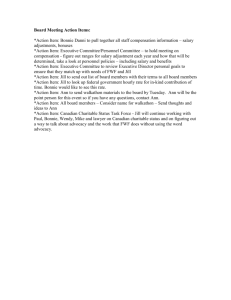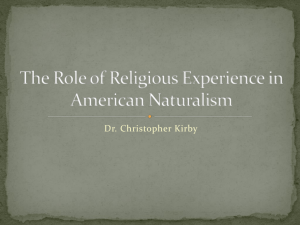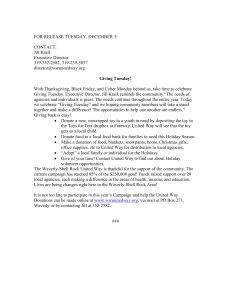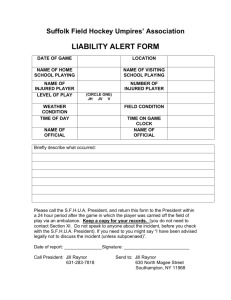Helping Hand?
advertisement
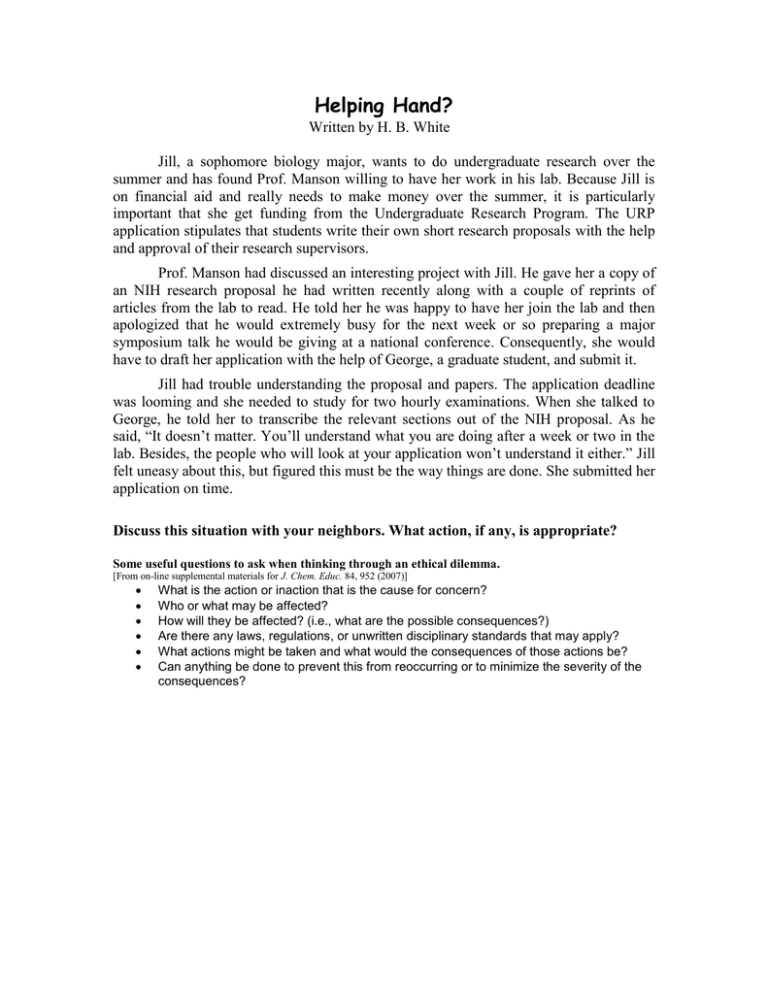
Helping Hand? Written by H. B. White Jill, a sophomore biology major, wants to do undergraduate research over the summer and has found Prof. Manson willing to have her work in his lab. Because Jill is on financial aid and really needs to make money over the summer, it is particularly important that she get funding from the Undergraduate Research Program. The URP application stipulates that students write their own short research proposals with the help and approval of their research supervisors. Prof. Manson had discussed an interesting project with Jill. He gave her a copy of an NIH research proposal he had written recently along with a couple of reprints of articles from the lab to read. He told her he was happy to have her join the lab and then apologized that he would extremely busy for the next week or so preparing a major symposium talk he would be giving at a national conference. Consequently, she would have to draft her application with the help of George, a graduate student, and submit it. Jill had trouble understanding the proposal and papers. The application deadline was looming and she needed to study for two hourly examinations. When she talked to George, he told her to transcribe the relevant sections out of the NIH proposal. As he said, “It doesn’t matter. You’ll understand what you are doing after a week or two in the lab. Besides, the people who will look at your application won’t understand it either.” Jill felt uneasy about this, but figured this must be the way things are done. She submitted her application on time. Discuss this situation with your neighbors. What action, if any, is appropriate? Some useful questions to ask when thinking through an ethical dilemma. [From on-line supplemental materials for J. Chem. Educ. 84, 952 (2007)] What is the action or inaction that is the cause for concern? Who or what may be affected? How will they be affected? (i.e., what are the possible consequences?) Are there any laws, regulations, or unwritten disciplinary standards that may apply? What actions might be taken and what would the consequences of those actions be? Can anything be done to prevent this from reoccurring or to minimize the severity of the consequences? Helping Hand? Part II Written by H. B. White Members of the faculty award committee spent the weekend reviewing undergraduate research proposals. They had to decide which 40 among the more than 70 applicants would receive funding for the summer. There were always applications that clearly deserved funding and those that did not. The ones in the middle were tough to decide. That’s where Jill’s was. At their meeting Monday morning, the following conversation occurred. Dr. Wolf: “This proposal from Jill reads really well in places, but it seems uneven.” Dr. McKinly: “Yeh, I noticed that too. Some of the sentence structure and terms just can’t be hers. She hasn’t been in the lab long enough to pick up some of the detail she describes. I doubt she wrote all of it. I suspect she lifted parts from some publication from the lab.” Dr. Brown: “But how do we know for sure? Are we going to decline her application based on our suspicion? Are we willing to investigate this and reprimand Jill and Prof. Manson? And besides, how do we know that all the other proposals were really written by the applicants? There were some other proposals I read, perhaps not so blatant, that seemed to me were cut and pasted together by the students from laboratory documents.” Dr. Wolf: “That is not the point. Are we simply going to ignore this and look the other way? What sort of message does this send to students?” Dr. Brown: “Look, I don’t want to make a federal case out of this even though it seems to be a problem. The students are just starting out. We should be thinking about education and not punishment. For me, the issue is what we can do to eliminate this problem, not through fear of being caught, but through understanding of what is proper conduct in research and why such standards exist.” Dr. Sharp: “Plagiarism or not, does this proposal measure up to the other proposals we are considering?” After considerable discussion, the full committee voted 4 to 3 not to fund Jill’s proposal. Jill received the rejection letter a week later and felt devastated. Was the awards committee ethical in its decision to deny Jill an undergraduate summer research fellowship? Why or Why not?
